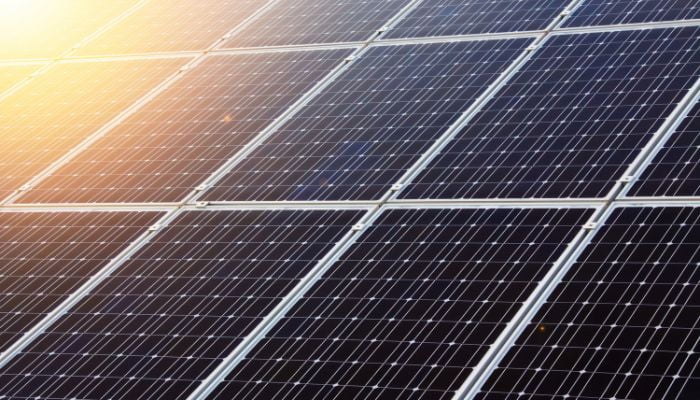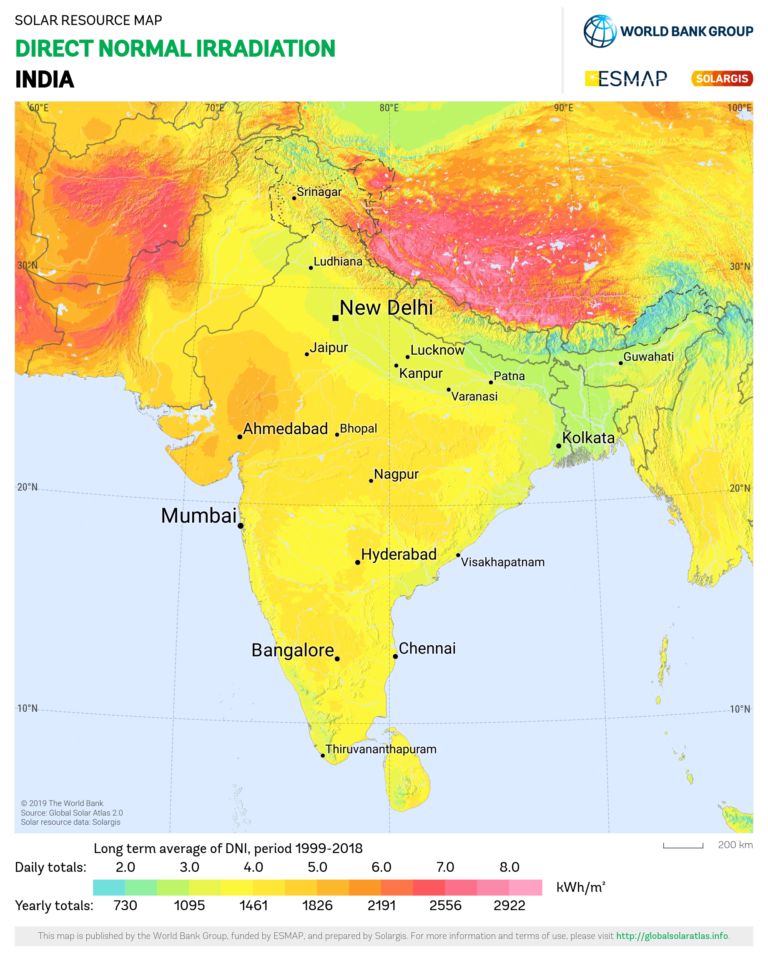
What is Lithium Ion Battery Technology
Lithium-ion battery technology, a cornerstone of modern energy storage solutions, has revolutionized the way we power our lives. Renowned for its numerous advantages, this technology stands at the forefront of rechargeable battery innovation, offering higher efficiency and longer life spans compared to traditional battery systems. As the backbone of energy storage solutions, lithium-ion batteries are pivotal in a range of applications, from powering electric vehicles to supporting renewable energy systems. The surge in electric vehicle battery innovation can be largely attributed to the advancements in lithium-ion technology, which has enabled the development of more reliable, long-lasting, and efficient power sources. These high-efficiency power cells have not only facilitated a significant shift towards cleaner transportation options but have also enhanced the capability of portable electronics, making them more powerful and durable. As we delve deeper into the realm of lithium-ion battery technology, we uncover its potential to reshape our energy infrastructure and drive us towards a more sustainable and energy-efficient future. This technology\’s impact extends beyond mere power storage; it\’s a key player in the global transition to renewable energy and a cleaner, greener planet.
Disclaimer: The below list does not signify any rankings, rather just gives you an indication of some of the companies operating in this space. The Reader shall get in touch with the companies directly to understand the quality and capabilities of the companies before any purchase.
Top Lithium Ion Battery Companies in India
India\’s lithium-ion battery manufacturing industry was growing rapidly, driven by the increasing demand for electric vehicles, renewable energy storage, and consumer electronics. Here are some of the top lithium-ion battery manufacturing companies in India:
Tata Chemicals:
As a part of the globally recognized Tata Group, Tata Chemicals is making significant strides in the lithium-ion battery sector. Their foray into this field is part of a broader initiative to support India\’s sustainable energy goals. Tata Chemicals has been focusing on developing advanced cell manufacturing technologies that can cater to various applications, including electric vehicles and grid storage. The company\’s research and development efforts are geared towards creating batteries that are not only efficient but also cost-effective, aiming to reduce India\’s dependence on imported battery technology. With a strong emphasis on innovation and sustainability, Tata Chemicals is poised to become a key player in the energy storage market, contributing to the nation\’s transition to cleaner energy sources.
Exide Industries:
Exide Industries, with its long-standing reputation in the traditional battery market, is expanding its expertise into the realm of lithium-ion batteries. Recognizing the growing demand for more efficient and environmentally friendly energy storage solutions, Exide is investing in the latest technologies to produce high-quality lithium-ion batteries. Their focus is not just on the automotive sector but also on energy storage systems for renewable energy applications. With a robust manufacturing infrastructure and a deep understanding of the Indian market, Exide is well-positioned to meet the diverse needs of consumers and industries. Their entry into the lithium-ion battery space signifies a significant step towards supporting India\’s green energy initiatives and electric mobility ambitions.
Amaron Batteries (Amara Raja Group):
Amaron Batteries, a key subsidiary of the Amara Raja Group, is expanding its portfolio to include lithium-ion batteries, recognizing the shift in the global energy landscape. Known for their reliability in automotive battery manufacturing, Amaron is now focusing on developing lithium-ion batteries that can support a range of applications, from electric vehicles to large-scale energy storage systems. Their commitment to quality and innovation is evident in their approach to this new venture. By leveraging their manufacturing prowess and research capabilities, Amaron aims to deliver products that are not only high in performance but also align with global environmental standards. This move is a testament to Amara Raja Group\’s dedication to contributing to India\’s energy security and sustainable development goals.
Reliance Industries:
Through its subsidiary, Reliance New Energy Solar Ltd, Reliance Industries is making a bold entry into the lithium-ion battery market. Their approach is comprehensive, encompassing the establishment of manufacturing units, research facilities, and strategic partnerships. Reliance aims to leverage its vast industrial expertise to produce high-quality lithium-ion batteries that can serve various sectors, including electric vehicles and grid storage. Their investment in this technology is a part of a larger vision to support India\’s clean energy transition and to establish a strong foothold in the global renewable energy market.
Adani Group:
The Adani Group, a conglomerate with a significant presence in the energy sector, is exploring the lithium-ion battery manufacturing space. Their interest lies in creating energy storage solutions that can support India\’s growing renewable energy infrastructure. The group\’s foray into this sector is expected to include the development of advanced battery technologies that can efficiently store solar and wind energy. With its extensive experience in large-scale infrastructure projects, the Adani Group is well-positioned to make a substantial impact on the energy storage market.
Mahindra Electric:
As a subsidiary of the Mahindra Group, Mahindra Electric\’s venture into lithium-ion battery manufacturing is a strategic move to complement its electric vehicle production. Their focus is on developing batteries that are not only efficient but also sustainable, aligning with the group\’s commitment to environmental responsibility. Mahindra Electric\’s expertise in the EV sector provides them with unique insights into the specific requirements of EV batteries, which they are leveraging to develop innovative energy storage solutions.
Okaya Power Group:
Okaya, a well-established name in the energy storage industry, has expanded its portfolio to include lithium-ion batteries. Their products are designed to cater to a wide range of applications, from residential and commercial energy storage to electric vehicles. Okaya\’s strength lies in its extensive distribution network and deep understanding of the Indian market, which they are using to deliver high-quality and affordable lithium-ion battery solutions.
JSW Energy:
JSW Energy, known for its significant presence in the power sector, has announced plans to enter the electric vehicle and energy storage manufacturing space, including lithium-ion batteries. Their entry into this market is part of a broader strategy to diversify their energy portfolio and support sustainable energy initiatives. With a strong focus on research and development, JSW Energy is poised to introduce innovative battery technologies that can meet the growing demand for efficient energy storage.
Hero Electric:
Part of the Hero Group, Hero Electric is expanding its focus beyond electric two-wheelers to include lithium-ion battery manufacturing. This move is in line with the company\’s vision to be a comprehensive player in the electric mobility sector. By developing their own battery technology, Hero Electric aims to enhance the performance and reliability of their EVs, as well as potentially cater to other applications in the energy storage market.
Bharat Heavy Electricals Limited (BHEL):
BHEL, a leading public sector enterprise, has ventured into the development of lithium-ion batteries for various applications, including electric vehicles and grid storage. Leveraging its vast experience in the heavy electrical equipment sector, BHEL is focusing on indigenous technology development to reduce dependence on imports and to support the Make in India initiative. Their entry into the lithium-ion battery market signifies a strategic move to align with the country\’s renewable energy and e-mobility goals.
HBL Power Systems:
HBL Power Systems, originally known for its expertise in specialized batteries and power electronics, is expanding its portfolio to include lithium-ion batteries. Their focus is on creating advanced battery solutions for sectors like defense, aviation, and telecommunications, in addition to electric vehicles and energy storage. HBL\’s commitment to research and innovation positions them well to contribute significantly to India\’s growing demand for efficient and reliable energy storage solutions.
ACME Cleantech Solutions:
ACME Cleantech Solutions, a company with a strong presence in the renewable energy sector, has entered the lithium-ion battery market with a focus on energy storage systems. Their batteries are designed to enhance the efficiency of solar and wind energy systems, providing a reliable storage solution that can help stabilize the grid and reduce reliance on fossil fuels. ACME\’s foray into lithium-ion technology is part of their broader vision to promote sustainable energy solutions across India.
Panasonic India:
As a subsidiary of the global electronics giant, Panasonic India is leveraging its international expertise in battery technology to produce high-quality lithium-ion batteries in the country. Their batteries are used in a wide range of applications, from consumer electronics to electric vehicles. Panasonic\’s commitment to innovation and sustainability is evident in their continuous efforts to improve battery efficiency, lifespan, and environmental footprint, making them a key player in India\’s energy storage market.
These companies are not only contributing to the growth of the lithium-ion battery market in India but are also playing a crucial role in the country\’s transition to cleaner energy and transportation solutions. It\’s important to note that the industry is dynamic, and new players may emerge while existing companies expand their operations.
LFP Lithium Ion Storage Solutions in India
In India, the push towards renewable energy has significantly amplified the need for efficient energy storage solutions, with lithium-ion batteries emerging as a key player. As the country aggressively adopts solar and wind energy, managing the intermittent nature of these sources becomes crucial. Here, lithium-ion batteries offer a viable solution, enabling the storage of excess energy generated during peak hours for use during periods of low generation. This not only stabilizes the grid but also ensures a consistent energy supply, crucial for India\’s rapidly growing energy demands. The Indian market is witnessing a surge in investments and innovations in this sector, reflecting a commitment to sustainable energy practices and a greener future. The integration of these advanced storage solutions is pivotal in India\’s journey towards becoming a renewable energy powerhouse.
Advantages of Lithium Ion Battery
- High Energy Density: Lithium-ion batteries offer a superior energy density compared to other battery technologies. This means they can store more energy in a smaller and lighter package, which is crucial for applications like electric vehicles and portable electronics.
- Low Self-Discharge: These batteries have a lower self-discharge rate than other rechargeable batteries. This means they retain their charge longer when not in use, making them more reliable over time.
- No Memory Effect: Lithium-ion batteries do not suffer from the memory effect, a phenomenon where batteries lose their maximum energy capacity if they are repeatedly recharged after being only partially discharged. This makes them more user-friendly and maintenance-free.
- Fast Charging: They can be recharged much faster than other types of batteries. This is particularly advantageous for applications like electric vehicles, where quick charging is essential.
- Long Lifespan: Lithium-ion batteries typically have a longer lifespan, measured in charge cycles, compared to other rechargeable batteries. This makes them a cost-effective solution over their lifetime.
Disadvantages of Lithium Ion Battery
- Cost: The initial cost of lithium-ion batteries is higher compared to traditional batteries like lead-acid. This can be a barrier for their adoption in certain applications.
- Temperature Sensitivity: These batteries can be sensitive to high temperatures. Prolonged exposure to heat can degrade their performance and lifespan. This requires careful thermal management in devices and vehicles.
- Aging: Even when not in use, lithium-ion batteries age, meaning their capacity and performance diminish over time. This aging process is accelerated by factors like high temperatures and high charge levels.
- Safety Concerns: Under certain conditions, such as overcharging, internal short circuits, or damage, lithium-ion batteries can pose safety risks, including the potential for fires or explosions. This necessitates robust safety mechanisms and careful handling.
- Environmental Impact: While they are more environmentally friendly than some alternatives, the mining and processing of lithium and other components of these batteries raise environmental concerns. Additionally, recycling lithium-ion batteries remains a challenge.
Eco-Friendly Battery Technology in India
Renewable Energy Storage Solutions in India are rapidly gaining momentum as the country strides towards a greener future. With an increasing focus on solar and wind energy, the need for efficient storage solutions is paramount. India\’s diverse geography and varying energy demands across regions make the adoption of advanced energy storage systems, like lithium-ion batteries, crucial. These technologies not only help in managing the intermittent nature of renewable sources but also enhance grid stability and energy security. The Indian government\’s supportive policies and initiatives towards renewable energy further bolster the growth of this sector, paving the way for innovative storage solutions that are essential for the nation\’s sustainable energy transition.
Eco-Friendly Battery Technology in India is witnessing a significant transformation, driven by the growing awareness of environmental sustainability and the urgent need to reduce carbon emissions. Lithium-ion batteries, known for their high energy density and long life, are at the forefront of this change. They are increasingly being used in a variety of applications, from electric vehicles to solar power storage, offering a cleaner alternative to traditional lead-acid batteries. Indian companies and startups are investing in research and development to advance these technologies, making them more accessible and affordable. This shift towards eco-friendly battery technology is not just a step towards reducing environmental impact but also a move towards self-reliance in energy resources, aligning with India\’s vision of a sustainable and energy-independent future.
FAQs on Lithium Ion Batteries
- What is the typical lifespan of a lithium-ion battery?
- Lithium-ion batteries generally last between 2 to 3 years or 300 to 500 charge cycles, whichever comes first. One charge cycle is a period of use from fully charged to fully discharged and fully recharged again.
- How safe are lithium-ion batteries?
- Lithium-ion batteries are generally safe, but they can pose a fire risk if damaged, overcharged, or subjected to extreme temperatures. Most are equipped with safety mechanisms to prevent these issues. It\’s crucial to use a proper charger and follow manufacturer guidelines.
- Can lithium-ion batteries be overcharged?
- Modern lithium-ion batteries are designed with integrated circuits to prevent overcharging. However, using an inappropriate charger or damaged batteries can lead to overcharging risks.
- What is the energy density of lithium-ion batteries?
- Lithium-ion batteries have a high energy density, typically around 150-200 Wh/kg, which makes them ideal for portable electronics and electric vehicles.
- How do temperature conditions affect lithium-ion batteries?
- Extreme temperatures, both hot and cold, can negatively impact the performance and lifespan of lithium-ion batteries. They operate best within a range of about 20°C to 25°C.
- What are the environmental impacts of lithium-ion batteries?
- While lithium-ion batteries are more environmentally friendly than some alternatives, concerns include the mining of lithium and other materials, and challenges in recycling used batteries.
- How do I properly store lithium-ion batteries?
- Store them in a cool, dry place at a partial charge. Avoid fully discharging or charging them before storage, and check them periodically.
- Can lithium-ion batteries be easily recycled?
- Recycling lithium-ion batteries is complex but possible. The process involves recovering valuable materials like lithium and cobalt. Efforts are ongoing to improve recycling methods and rates.
- What sizes do lithium-ion batteries come in?
- Lithium-ion batteries come in various sizes, from small button cells for watches to large packs for electric vehicles. Their size is tailored to the power needs of the device they\’re powering.
- How does the design of lithium-ion batteries affect their performance?
- The design, including electrode material and battery chemistry, significantly impacts performance factors like energy density, power capacity, and safety. Ongoing research aims to optimize these aspects for better performance and safety.


